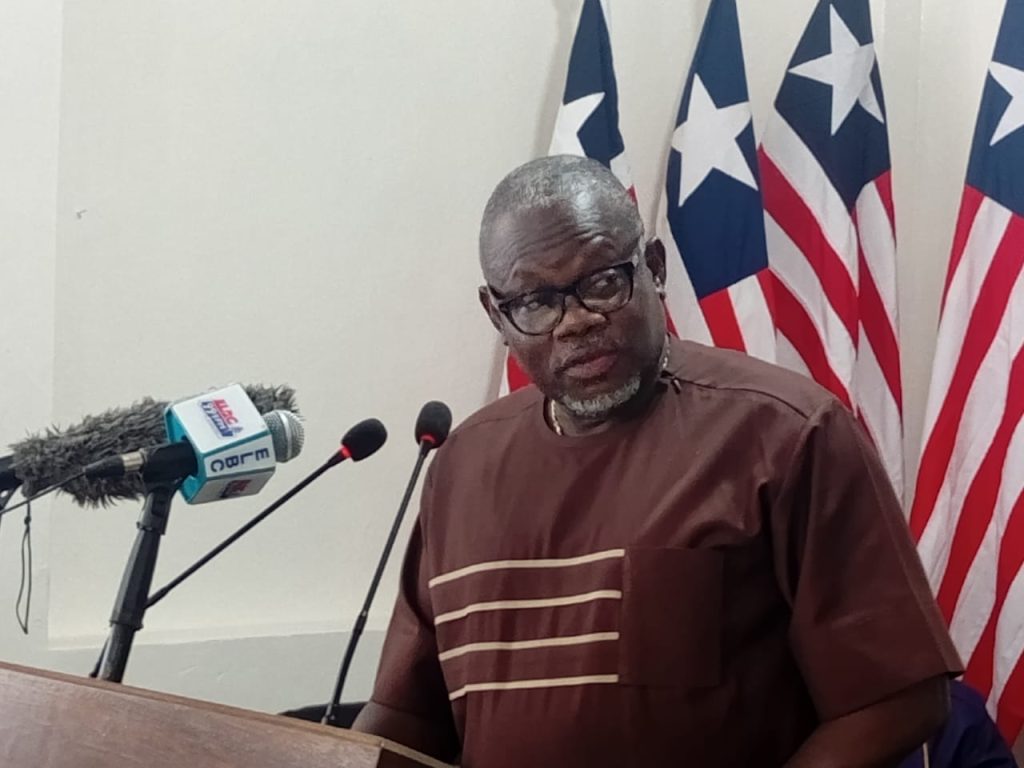Liberia’s Information Minister, Ledgerhood Rennie, has vehemently condemned recent statements made by former Vice President Jewel Howard Taylor, which he characterized as inflammatory and potentially destabilizing. Taylor’s remarks, delivered during a political gathering of opposition leaders, warned President George Weah to “respect the rule of law” following a Supreme Court ruling, hinting at potential unrest if the decision was not adhered to. Minister Rennie, speaking at a press briefing, categorically rejected any attempts to incite violence or undermine the country’s hard-won peace and democratic progress. He asserted the government’s unwavering commitment to upholding law and order, promising swift action against anyone threatening national security. He emphasized that while freedom of expression is a fundamental right, it cannot be used as a pretext for inciting chaos or violence.
Minister Rennie’s condemnation extended beyond a mere rebuke of Taylor’s words; he explicitly linked her pronouncements to a pattern of benefitting from positions of power, suggesting that her agitation stemmed from being out of office after nearly three decades of government employment. He further criticized her for what he perceived as an attempt to distance herself from the legacy of her ex-husband, former President Charles Taylor, who is currently serving a prison sentence for war crimes. Rennie drew a stark contrast between Taylor’s current rhetoric and her past association with a regime responsible for widespread displacement and violence during Liberia’s civil war, arguing that she cannot escape accountability for her role, including her position as a key advisor to the former president.
The Information Minister’s response highlighted the fragility of peace in post-conflict societies like Liberia, where the wounds of civil war remain unhealed and the potential for renewed conflict is ever-present. His forceful condemnation of Taylor’s remarks underscored the government’s determination to prevent a relapse into violence and to safeguard the democratic gains achieved since the end of the war. He urged Liberians to reject divisive rhetoric and to remain committed to peaceful means of resolving political disputes, emphasizing that resorting to violence would only inflict further suffering on the population. He specifically cautioned against being swayed by individuals who are quick to incite unrest but equally quick to abandon the country should conflict erupt, leaving ordinary citizens to bear the brunt of the violence.
Rennie’s pronouncements also serve as a broader cautionary tale about the dangers of political opportunism and the manipulation of ethnic or regional tensions for personal gain. He implicitly accused Taylor and other opposition figures of exploiting existing grievances to destabilize the government and advance their own political ambitions, potentially jeopardizing the country’s fragile peace in the process. By drawing attention to Taylor’s past association with a regime known for its brutality, he aimed to discredit her current rhetoric and portray her as a cynical manipulator seeking to return to power through any means necessary.
The ongoing political tensions in Liberia underscore the challenges of consolidating democracy and maintaining stability in post-conflict environments. The exchange between Minister Rennie and former Vice President Taylor represents a microcosm of the broader struggle between those seeking to preserve peace and those willing to exploit existing fault lines for political advantage. The government’s response, while firm, also highlights the delicate balancing act required to uphold freedom of expression while simultaneously preventing the incitement of violence.
The situation in Liberia serves as a reminder of the importance of vigilance in protecting democratic institutions and the rule of law. The government’s commitment to holding those who incite violence accountable is crucial, but equally important is the need for continued efforts to address the root causes of conflict, including poverty, inequality, and lack of access to justice. Only through a comprehensive approach that addresses both the symptoms and the underlying causes of instability can Liberia hope to consolidate its democratic gains and secure a lasting peace. The international community also has a role to play in supporting Liberia’s efforts to build a more just and equitable society, one that is resilient to the forces of division and violence.


